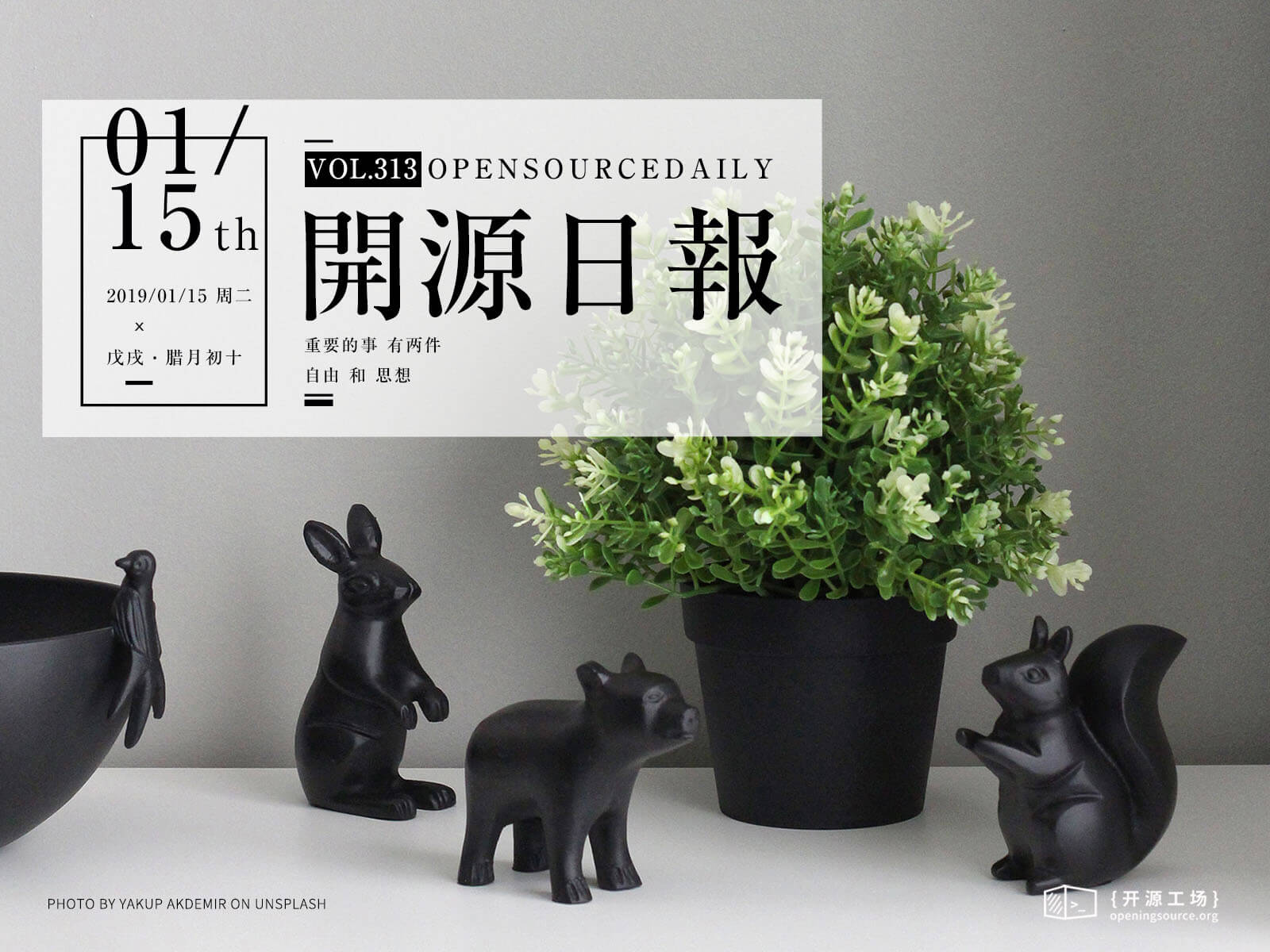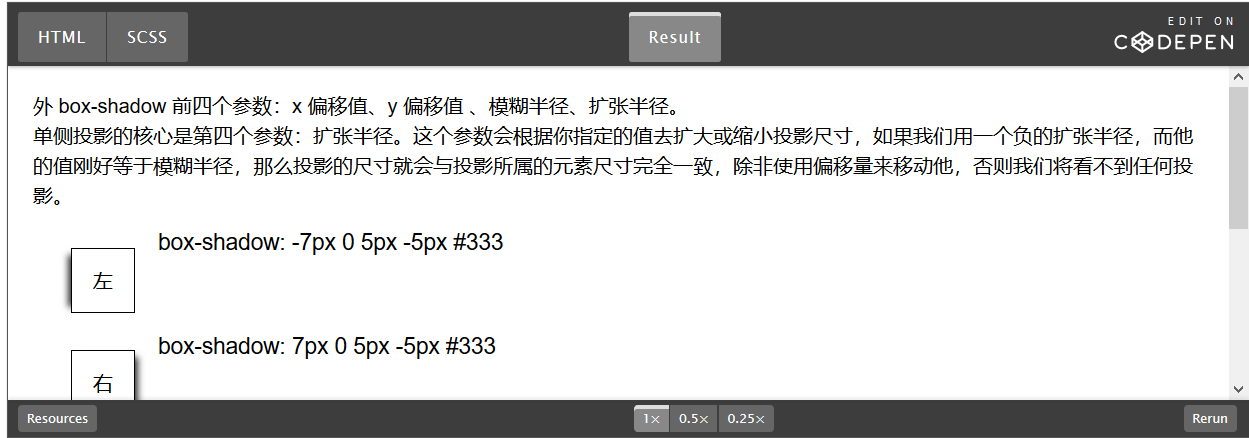今日推薦開源項目:《靈性的操作 CSS-Inspiration》
今日推薦英文原文:《7 tips to ace your tech job interview》

今日推薦開源項目:《靈性的操作 CSS-Inspiration》傳送門:GitHub鏈接
推薦理由:一些使用 CSS 來完成某些課題的方法合集。這個項目展示了各種 CSS 的使用方法,包括各種布局方法和各種投影方法等等,意在讓讀者從中想到一些關於 CSS 的新使用方法,如果想要為自己的個人網頁加上一些新的效果的話,可以在這個項目中找到一些方案或者靈感。

今日推薦英文原文:《7 tips to ace your tech job interview》作者:Jessica Repka
原文鏈接:https://opensource.com/article/19/1/job-interviewing-tips
推薦理由:在新的一年裡找工作的面試指南
7 tips to ace your tech job interview
I've found myself looking for jobs more often than I'd like. For the most part, it's been due to company buy-outs, but other times it's been due to less-than-adequate working conditions. Recently, I've spent time on the other side of the fence, interviewing people. The following tips are based on events from my job interviews and what I've seen in person while interviewing others. Use these strategies to stand out from the crowd (in a positive way) at your next job interview.Do your research
Before walking into the door for an interview, it's helpful to know the company and its line of services. Someone is going to ask, and most likely you will be interviewing for a position directly involved in providing or building those services. Make sure you know about both the company and the position's requirements so you understand where the job fits into the company overall. You'll probably be asked to answer something about this within the interview's first three questions.Dress for the job you want, not the one you have
Even though I've heard this quote countless times, it will always ring true. Presenting yourself in front of other people matters in many situations, none more important than a job interview. Never show up in jeans, a t-shirt, and flip-flops and messy hair. It doesn't matter if that's what your interviewer looks like or if you have been told that it's a relaxed environment. On the flipside, don't show up in an evening gown or tux—it's not a wedding or a night out. Be dressed for business. For men, a nice pair of slacks, a button-down shirt, and a sports jacket or blazer (I'd choose blazer) is appropriate. Women, you can't go wrong with a nice power suit or a business-style dress with a coordinating jacket. Always make sure you are well-groomed, brush your teeth, and do not use overwhelming perfume or aftershave/cologne.The truth about your résumé
Recently, I've found more than one person who put information on their résumé they couldn't explain when asked a basic question about it. An example would be listing Docker on your résumé but not being able to answer something as simple as, "You have Docker experience listed here; can you tell me what CMD in the dockerfile means?" This has happened, and it always ends with a difficult talk with the recruiter afterward. Anyone can understand a small amount of fluff on the résumé, but if you cannot answer a basic question about your experience, it shouldn't be there.It's OK to say no
In interviews, there will always be questions relating to the job description and requirements that aren't on your résumé. It's ok to say, "No, unfortunately, I have not had the chance to work with this yet." If you are not willing to learn that skill, this position may not be for you, and that is OK. If you are willing to learn, then make sure to say, "No, unfortunately, I have not had the chance to work with this yet. But I'm always willing to expand my experience."Most of the time you are asked, "Are you willing to learn or be trained to use this technology?" it's sufficient simply to say, "Yes I am." In case they follow up by asking, "What's your best form of learning?" be ready with your answer. My answer is always the same—books and documentation—but you may learn a different way, which you can state if the subject comes up.
Awkward silences and answering questions
Answering questions can always be a little rough. I have anxiety, so I understand how hard it is, and most other interviewers understand, too. But you don't want to entertain or amuse the interviewer for the wrong reasons. To that end, here are some do's and don'ts for things to say in an interview. (Again, these are all based on my real-life experiences.)- If you need a whiteboard to explain an answer, say so after the interviewer asks the question by politely asking, "May I draw this out for you on a whiteboard?"
- Never allow a very long, awkward silence after you answer a question. If you count to five (in your head) and nothing is said, ask, "Do I need to explain further?" or "Do you have another question for me?"
- After you answer a question, don't ask, "Was that right?" And, if you did get the correct answer, don't proceed to say, "Yes, I got it!" while fist-bumping the sky.
- Never tell the interviewer that you're only taking the job to pay your bills.
- Never tell the interviewer you don't really plan on working very hard.
Off-topic questions
Occasionally, interviewers will ask off-topic or non-work-related questions. It's OK, this isn't a quiz; in most cases, they are just trying to get a feel for your personality. Below is a list of questions I've answered or asked.- What hobbies do you have?
- What is your favorite color?
- What do you do for fun?
- Do you do any volunteer work?
- Do you have any pets?
- Which do you prefer, the art museum or the science museum?
Returning fire: Asking questions of your interviewer
You've reached the end of the interview—congrats, you made it this far! And the interviewer says, "Are there any questions you have for us?" Limit your questions to around five, eight at the very most. Professionalism does not go out the door at this point; while you could ask whatever you like, there are always lines you shouldn't cross.Questions you can and should ask:
- What is the atmosphere like with the team I'd be working with?
- What is the dress code?
- What types of projects would I be working on?
- How many team members would I be working with?
- What hobbies do you have?
- Do you like working for this company?
- Do you like the technology you work with?
- How long has the company been using these tools, software, or technology?
- What pay would I receive?
- What holidays or vacation time should I expect?
- What are the benefits like?
- How hard is this job really?
- Is this a 9-to-5, or could I work fewer hours?
Yes, it really happened
Many of you will think some of these things are obvious. While that is true, everything I've written here has happened. Some I've witnessed myself, some I've heard through managers at other companies, some I've learned through recruiters. As I mentioned, poor interviews spread easily. Your name is on that résumé, and it's easy to get a reputation without even knowing it's happening.下載開源日報APP:https://openingsource.org/2579/
加入我們:https://openingsource.org/about/join/
關注我們:https://openingsource.org/about/love/
